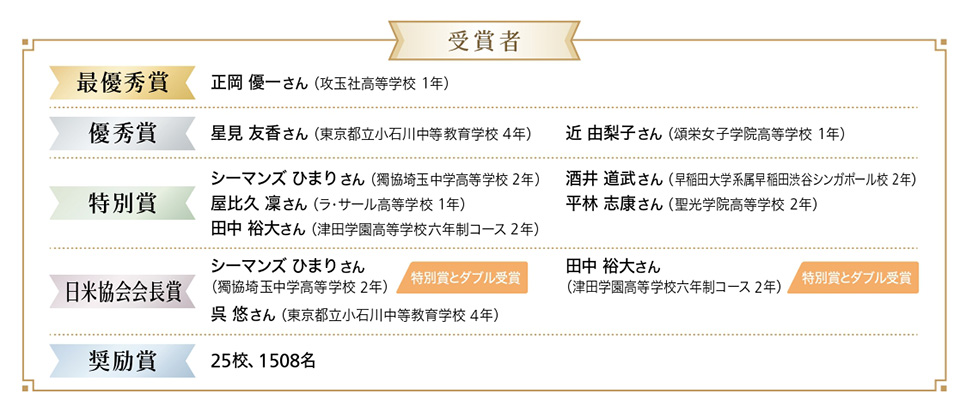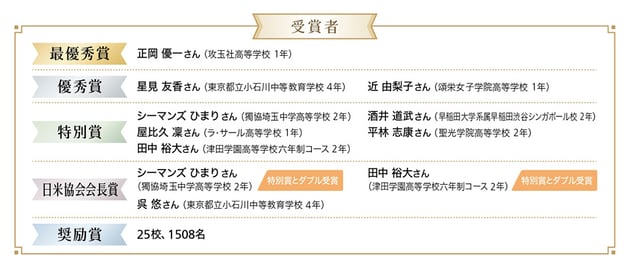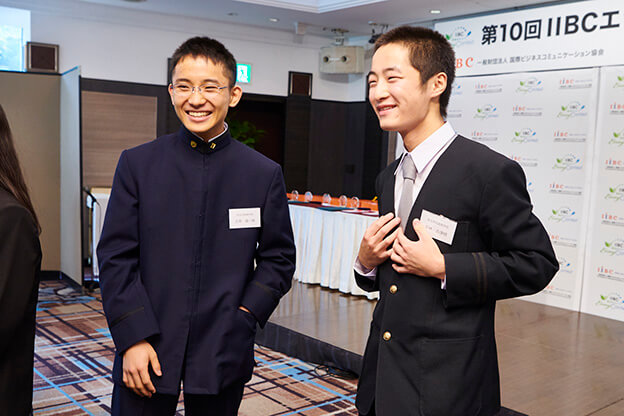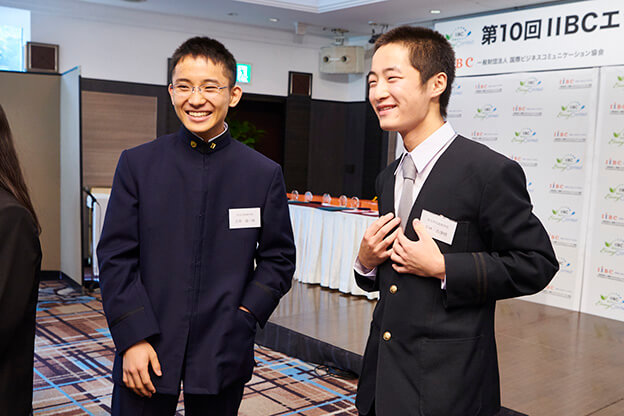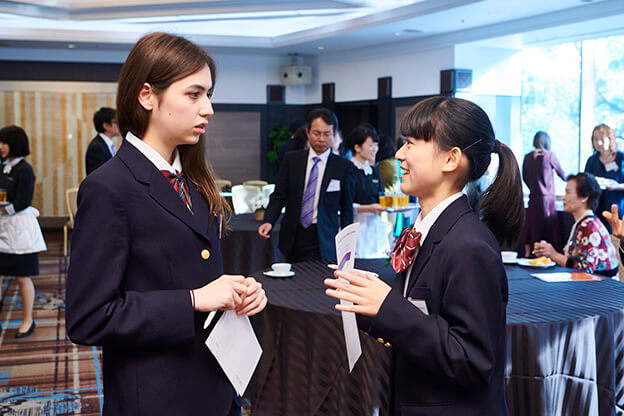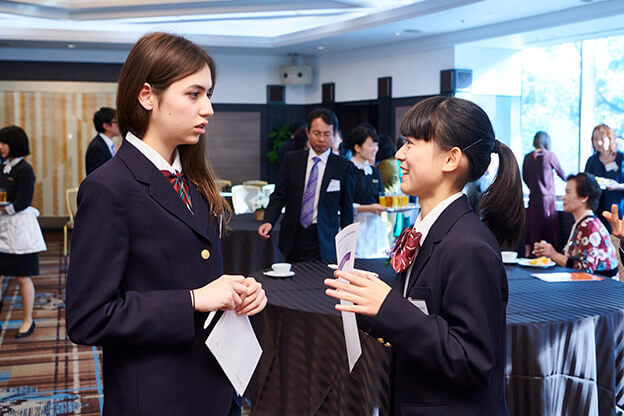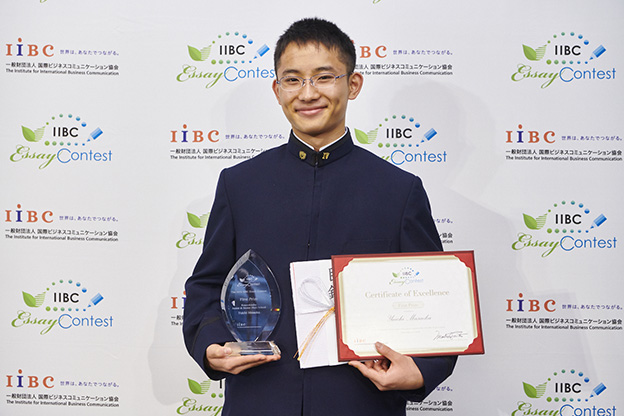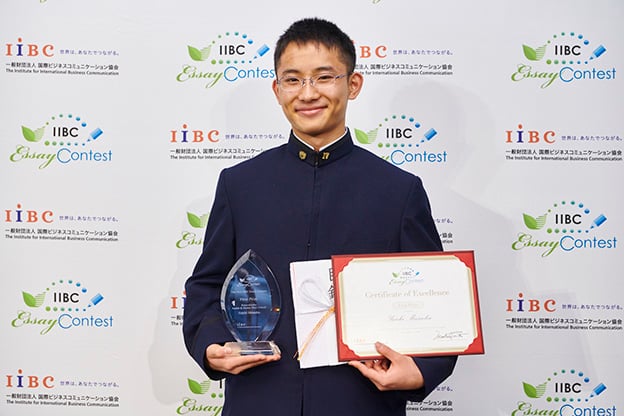「私を変えた身近な異文化体験」をテーマに英語で想いを伝える
第10回 IIBCエッセイコンテスト表彰式
高校生を対象に、2009年にTOEIC 30周年の記念事業として始まった「IIBCエッセイコンテスト」。記念すべき第10回を迎えた2018年度は「私を変えた身近な異文化体験」をテーマにした英語のエッセイを募集し、本選・奨励賞合わせて1700名を超える皆さんから応募をいただきました。
2018年11月10日(土)、第10回IIBCエッセイコンテスト表彰式をホテルニューオータニで開催しました。表彰式には受賞者のほか、審査員、過去の受賞者、ご指導いただいた先生、保護者の皆様など、約50名の方々にお越しいただきました。
181作品の応募があった中、見事、本選の最優秀賞に輝いたのは攻玉社高等学校1年の正岡優一さんでした。正岡さんは受賞のスピーチで「今まで私を支えてきてくれた家族、国内外でお世話になった先生方をはじめとする皆様、そして大会運営の各関係者の方々に、心より御礼申し上げます。本当にどうもありがとうございました」と、周囲への感謝を述べました。
表彰式後に行われた親睦会では、生徒さん同士あるいは先生を交えての交流が行われ、エッセイのこと、海外生活のこと、将来のことなどについて、皆様笑顔で楽しそうにお話しされていました。
受賞者インタビュー
読み手の心をぐっとつかめるよう、冒頭には特に気を配りました
高校に入ってから英語ディベート部に所属した私は、英語で表現しまとめる力がどれくらいあるのか腕試しをしたいと思っていました。インターネットでいろいろ探したところ、IIBCのエッセイコンテストを発見。エッセイのテーマが「私を変えた身近な異文化体験」であったため、幼少期にベルギーで過ごした経験が生かせるのではないかと、応募することに決めました。
父親の仕事の都合で6歳の時にベルギーに渡り、最初の半年間を現地のオランダ語の幼稚園で過ごしました。最初は言葉も通じず、向こうの子どもたちと仲良くなるのに戸惑いましたが、サッカーをしている仲間たちの輪に思い切って入ったところ、言葉がうまく通じなくても、スポーツを通じて一気に距離が縮まるということを経験しました。そして、この経験は、その後に3年間通ったイギリス式の小学校でも、同様に生かされることとなり、スポーツは言語を超えたコミュニケーションである、という実感が非常に印象深く自分の中に残っていたため、今回のエッセイのベースにしようと考えました。
エッセイは、しばらくの間、頭の中で構成を練ってから、2~3時間ほどで一気に書き上げました。その後、2〜3日寝かせてから推敲を行いました。毎年、応募者多数だと聞いていましたので、できるだけ審査員の方に目に留めていただけるよう意識したことは、「Introduction」「Body」「Conclusion」という、従来の形式にとらわれ過ぎないようにすることでした。中でも特に気を付けたところは、冒頭の部分です。国語の授業で、出だしの文章でいかに読み手の心を掴むかが重要だと教わったことを思い出しながら、工夫を凝らしてライティングにあたりました。また、冒頭で使用した「silence」などの言葉を文末でも使用することで、印象的な読後感になるようにも配慮しました。
帰国してから今年の夏で間もなく7年が経ちますが、英語力維持のため、英語スクールに毎週2時間通いつつ、日頃から英文のニュースを読むなど、英語に触れる機会をできるだけ工夫して作ってきました。実際に、英語のエッセイもあまり気負わずに取り組むことができました。正直に言うと、ある程度の自信はあったものの、実際に最優秀賞と連絡を受けた時には「本当に?」と疑いました。予想外の優れた結果に驚きましたが、自分の表現を認めていただいたことを大変ありがたく、そして、誇りに思いますし、今後の英語学習において大きな励みにもなることと思います。
また、副賞としてAFSの短期留学という大変貴重な機会をいただくこととなり、8つある留学先の中からイギリスを選ばせていただきました。イギリス式の学校という幼い頃に学んだ原点に立ち返ることで、また新たな一歩を踏み出せることと思っています。将来は、語学力を生かしつつ、経験を重ねながらさまざまなスキルも身につけて、少しでも社会に貢献できるよう、日々努力してまいりたいと思います。
正岡 優一さん 受賞作
“The Little Ball Moves the Big Ball”
The eastern sun broke the silence of darkness and announced the beginning of another winter day to the little town of Leuven, Belgium. It wasn’t always a pleasant experience, to make my way, through the freezing dawn, to a Kindergarten where I had no one to talk to.
It was when I was 6 years old that my family moved to Belgium, where I had no choice but to go to a local kindergarten where everyone spoke Dutch, a language that I did not understand at all. Of course, I wasn’t completely helpless, for I knew the two words: “toilet!” and “help!”, both of which are, needless to say, English.
So it was, that I was on my way to another day at the Dutch kindergarten, not expecting to find out that I had a universal means of communication: football. As soon as I saw a crowd gathering around a football in the playground, I made my mind up to join them, and I scored! Occupied by excitement and joy, me and the Belgian boys rushed to each other and embraced one another. This is how my friendship started on that alien planet, and after ten years, it still remains in my mind as an unforgettable moment.
It is more than evident that this experience had taught me a universal and timeless law: sports are a universal language. Communication can be about conveying and sharing emotions without the use of language: which include, playing sports, dancing to music and sharing pieces of art. They are a universal means of communication that allows anyone to get closer to anyone from anywhere of the globe; and that is where I find the solution to overcoming cultural and language barriers, especially in an entangled world as today’s.
As I moved onto primary school and joined a British school in Brussels, there no longer was a barrier for me, for I knew what to do. I was especially fortunate, because it was on my first year at the new British school that the 2010 Football World Cup was held. Every morning we would find ourselves highfiving each other to share the excitements of last night’s game, and every breaktime we would be laughing at our original goal performances. It has been a truly glorious time to be connected interculturally with one little ball.
To further expand on this, let us look into a historical example of a sport connecting, not just individuals, but also nations. In 1971, at the World Table Tennis Championships in Nagoya, a 19-year old American player hopped on to the bus of the Chinese national team. All the Chinese players on board directed an eye of suspicion at the unexpected guest, but the silence was soon broken when one of the Chinese players started talking to the American through an interpreter, which resulted in the exchanging of pictures and T-shirts, despite the Chinese government’s prohibition on having contact with the players of the U.S. After this incident was reported worldwide, Chairman Mao Zedong perceived this as a chance, and invited the Americans to a Ping Pong competition in China, only 3 days after the event. With the Cold War at its height, this tiny connection through sport united political enemies, broke 22 years of diplomatic silence, and even lead to the visiting of China by U.S. president Nixon on the following year.
It must not go without saying that Japan is lucky to have the opportunity to play the same role it played in the ping pong diplomacy in the next two years: 2019 Rugby World Cup, and the 2020 Olympic Games. Now, I strongly feel that it is my job to make use of my experience and my linguistic abilities to be of some help in globally connecting our world in Japan again, like how I built friendship in Belgium and how Ping-Pong once formed international relationships.
Let me conclude with Mao Zedong’s comment on Ping Pong diplomacy: “The little ball moves the big ball.”
I firmly believe that the same goes with football, and every other sport, and that sports are always there for you to break and overcome any intercultural silence.
おすすめ記事

「完璧」ではなく「伝わる」を目指す!世界の共通語としての英語(ELF)とは?
瀧野 みゆきさん
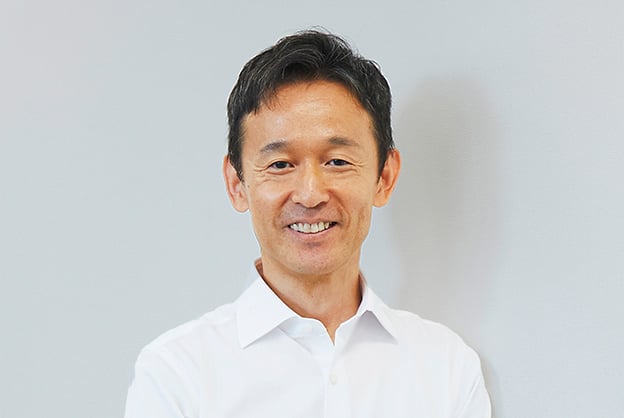
世界観を広げ、好奇心を促す英語学習が年を重ねても脳の成長を推進する
加齢医学研究所 教授
医師・医学博士
瀧 靖之氏

英語学習者にアンケートを実施!
なぜ英語を学ぶのか
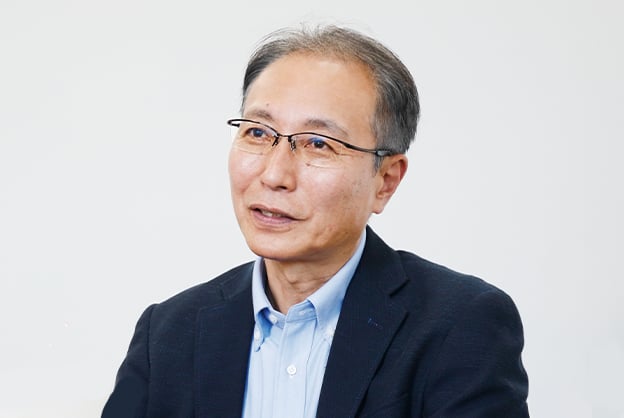
56歳で通訳を目指し定年後にその夢を実現
旅程管理主任者
櫻井 篤氏
